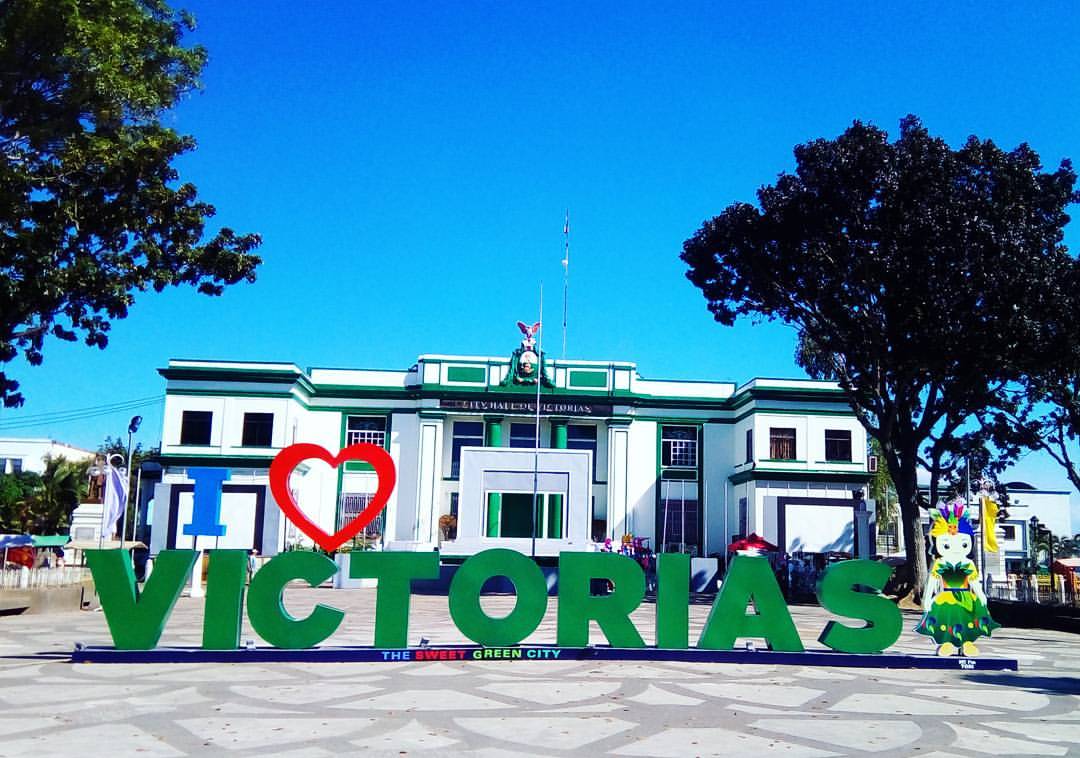
Hog raisers receive livestock from the Victorias City government in Negros Occidental to provide them with alternative livelihoods after it was hit by the African swine fever (ASF) in 2023. Photo from the Facebook page of Victorias City Hall
BACOLOD CITY — The Victorias City government in Negros Occidental has distributed livestock to provide hog raisers with alternative livelihoods after it was hit by the African swine fever (ASF) in 2023.
Chickens, goats, and even rabbits were given to affected local hog raisers to help them cope with the problem.
The city also insured almost 100 percent of its hogs.
Mayor Javier Miguel Benitez said the city has not recorded any ASF this year and is waiting to be officially declared ASF-free.
READ: Negros Occidental bans entry of pigs, pork products from areas with ASF
Almost all of Victorias City’s hog raisers are insured with the Philippine Crop Insurance Corporation and the city’s own crop insurance program.
Victorias City was the first local government in Negros Occidental to announce that it had ASF cases so the raisers could be insured.
The Negros Occidental provincial government distributed P2,000 in assistance to each of the 96 affected hog raisers in Victorias on February 20.
Benitez said he supports Negros Occidental Gov. Eugenio Jose Lacson’s continued ban on the entry of pigs and pork from ASF-hit areas into the province.
“It cannot not be done immediately because when you allow everything to enter we may get ASF again. We can build and grow again slowly but we also have to find alternatives while there is still a ban,” he said.
READ: No aid for hog raisers who don’t follow rules on dead pig disposal in Negros Occidental
Lacson has issued an executive order that bans the entry into of all pigs, boar semen and pork products from areas with reported cases of ASF in order to protect and enable the hog industry of the province to recover.
The order released on Monday, Feb. 26, prohibits the entry into Negros Occidental of pigs, boar semen and pork products from Bacolod City, Negros Oriental, Luzon, Mindanao, Eastern Visayas, Panay Island, Guimaras Island, Cebu province, Camotes Island, Bantayan Island, and countries affected with ASF as declared by the Department of Agriculture (DA).
Exempted from the ban are processed pork products that are fully cooked such as ham, sausages, hotdogs, canned goods, pork chicharon, pork-based seasonings, and the like, provided they are sourced from meat establishments with Certificates of Compliance to the ASF Public-Private Audit.
Lacson said Bacolod was included in the ban because it is still classified as an ASF red zone.
Mayor Alfredo Abelardo Benitez recently lifted Bacolod’s ban on the entry of pigs and pork products to try to bring down their cost in the city.
Bacolod is also classified as a red zone so it can accept products from red zones. Negros Occidental is classified as a dark green zone or free from ASF.
Red zones are areas where some hogs were infected by ASF while dark green zones are cities and municipalities where ASF is not detected and are considered of low risk.
Lacson said the provincial government will strictly follow the protocol against the entry of pigs and pork products from banned areas.
According to the National Meat Inspection Service, ASF is a highly contagious viral disease that affects pigs, warthogs, and boars.
It causes pigs to have high fever and lose their appetite, and causes hemorrhages in the skin and internal organs. Pigs die in a span of two to 10 days upon affliction. There is no known vaccine against ASF yet.
Health officials reiterated that ASF does not pose any threats to human and that other pork products from infected areas were safe to eat.